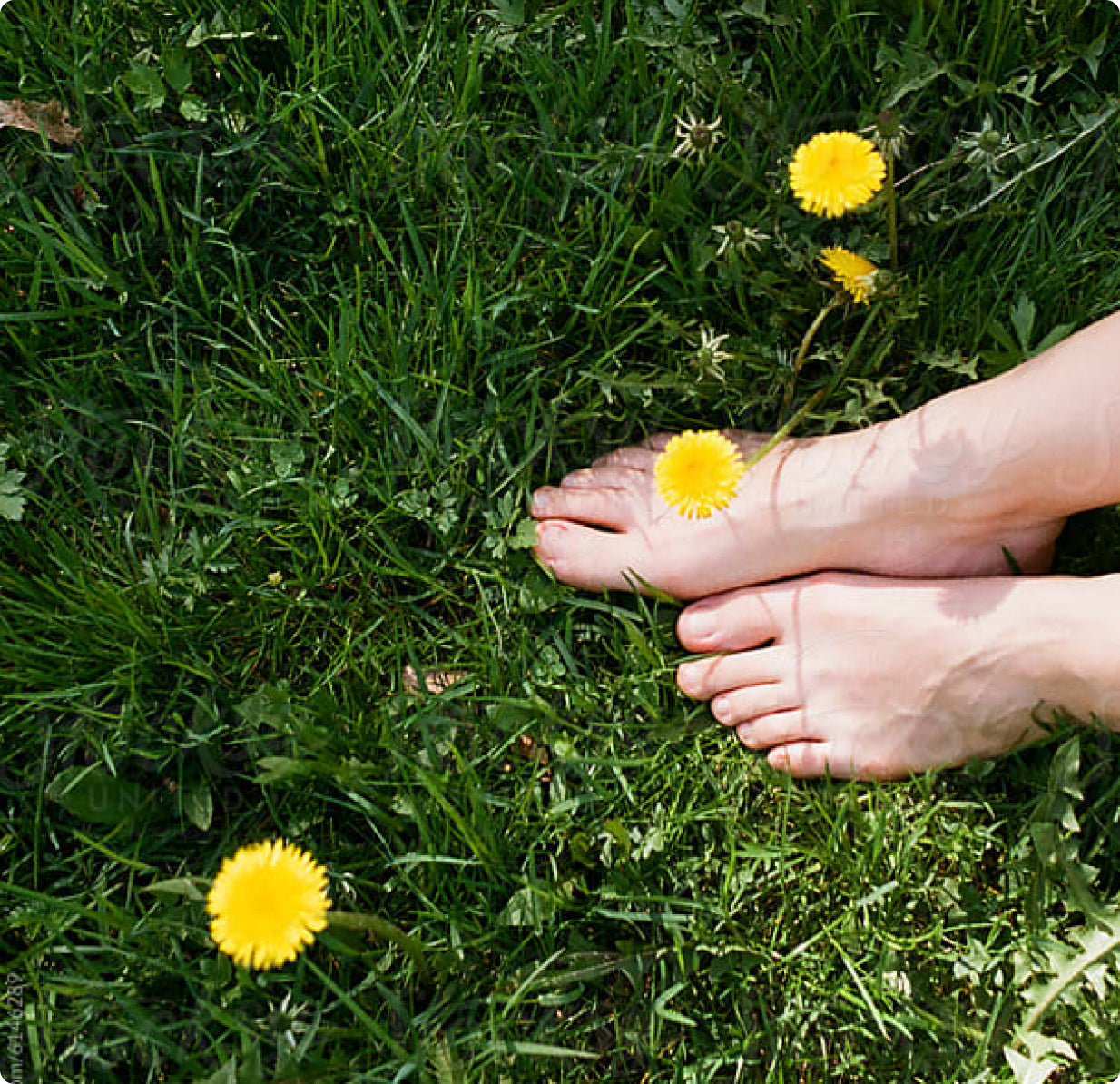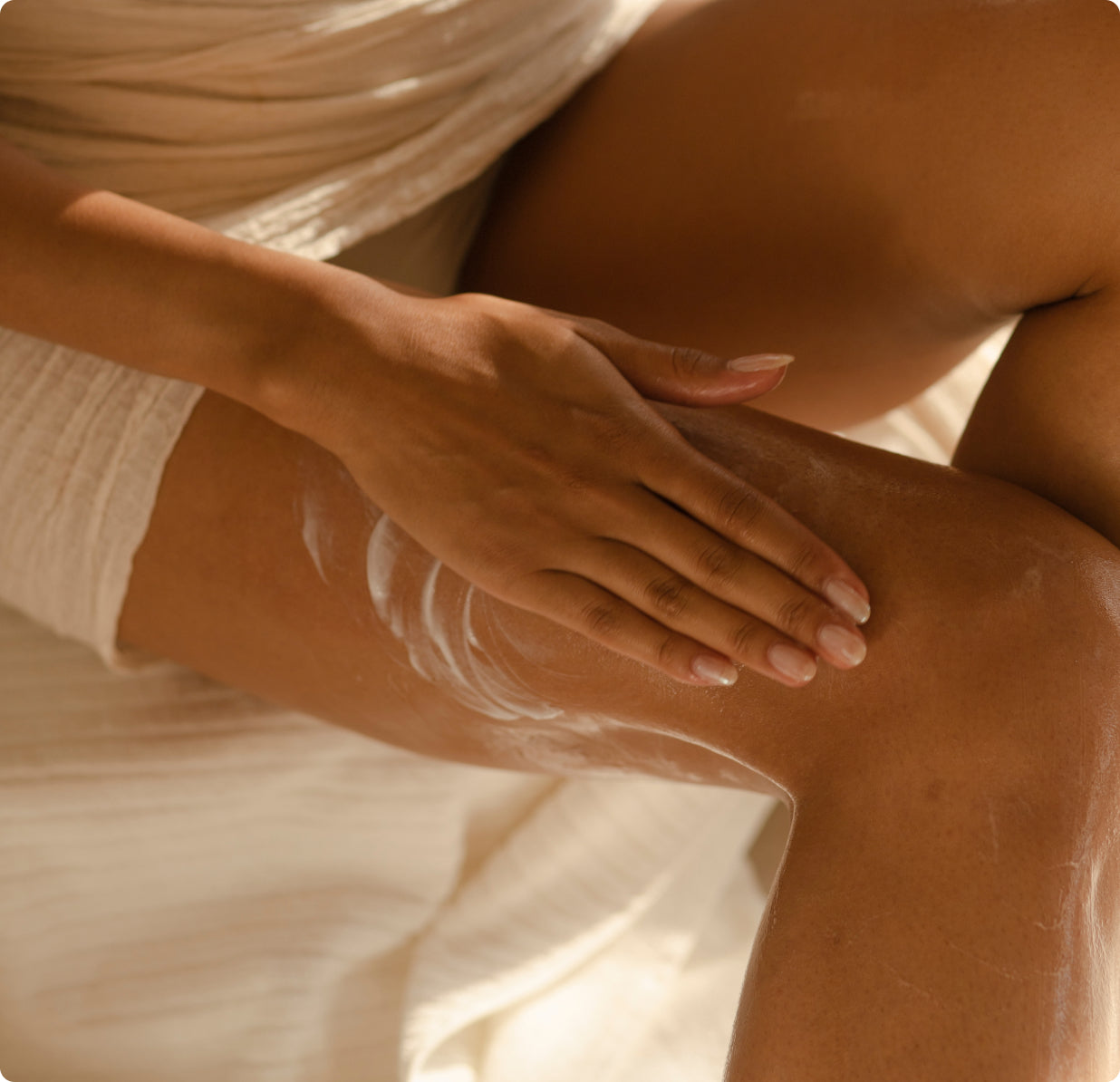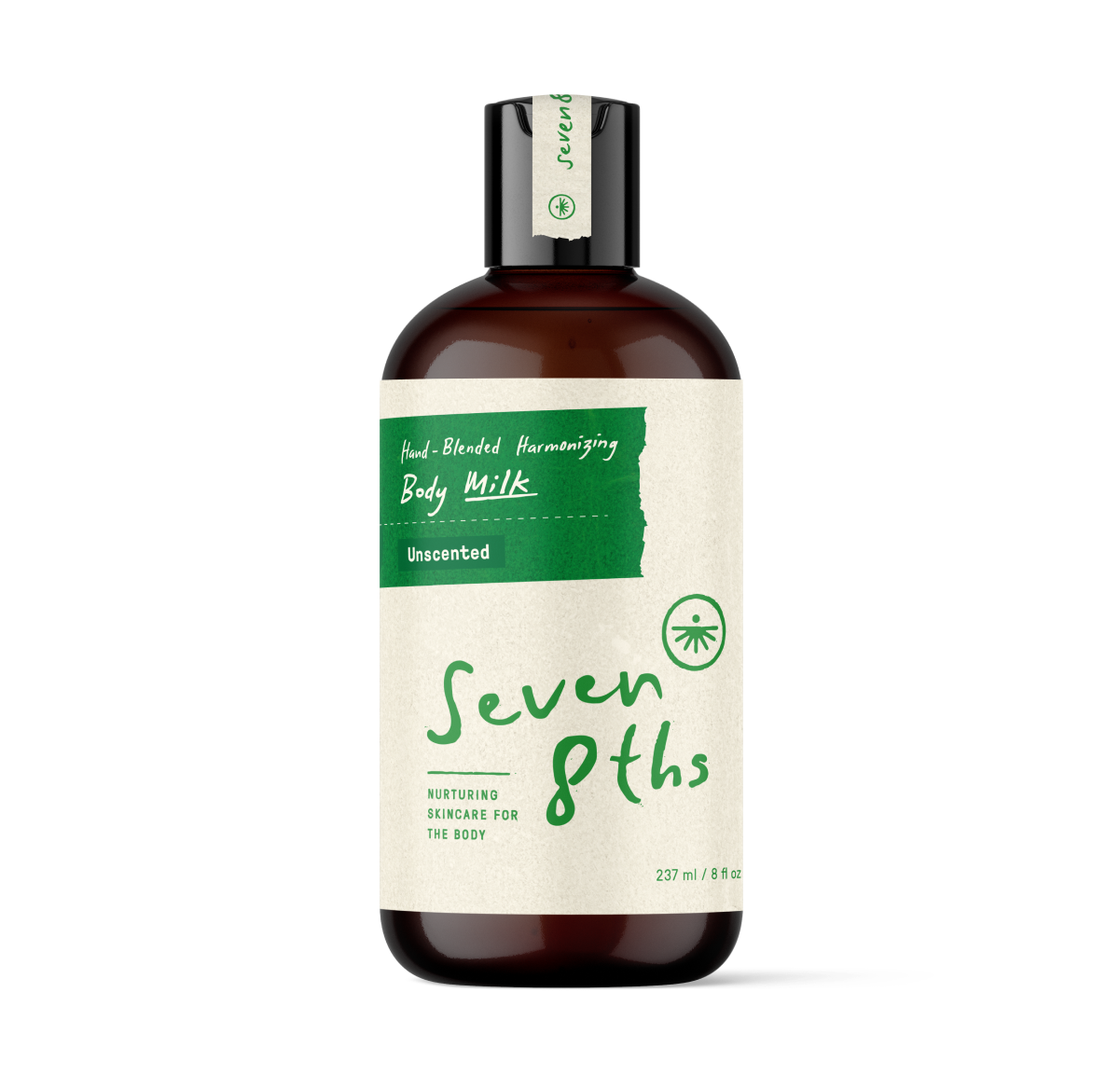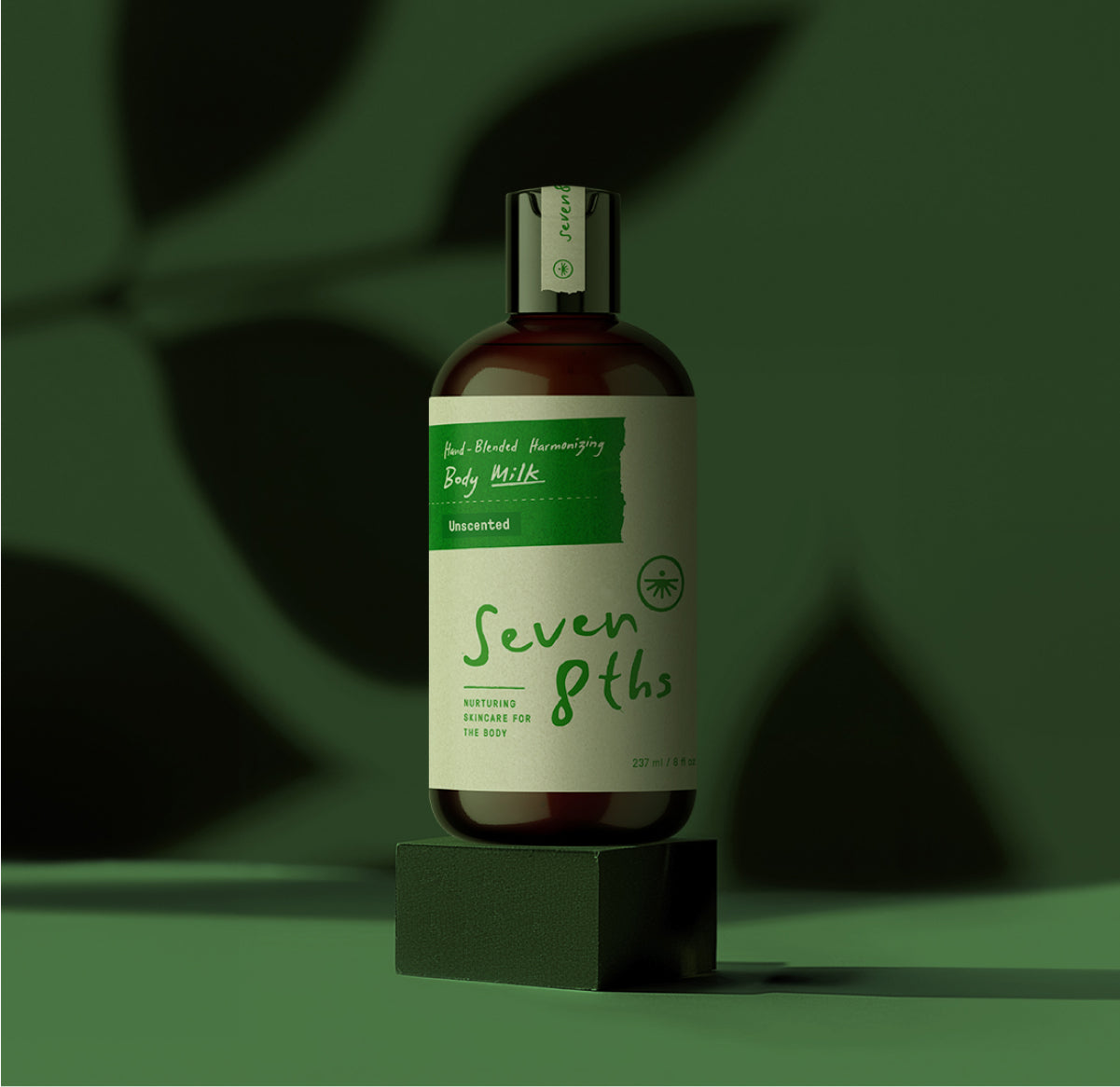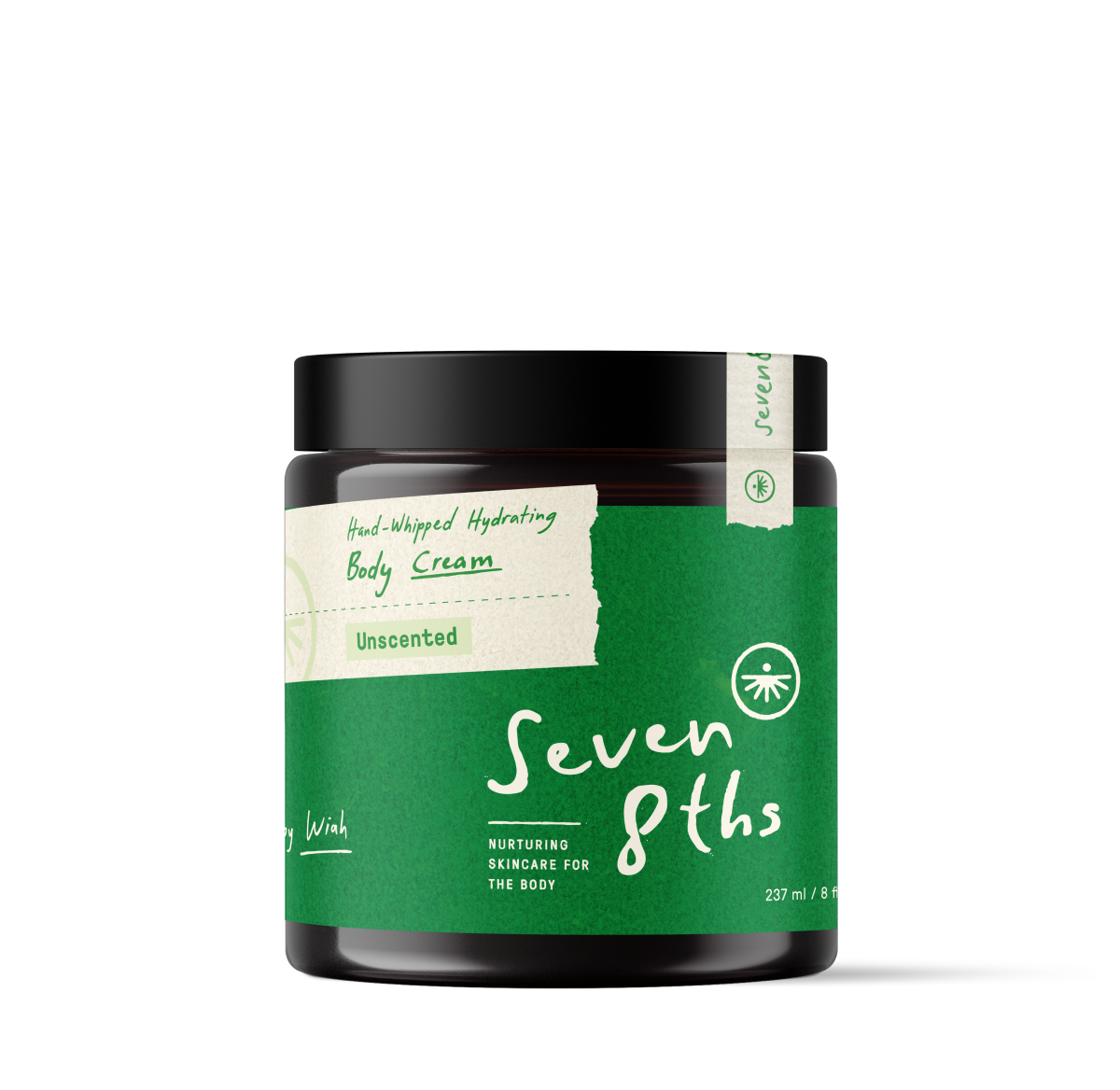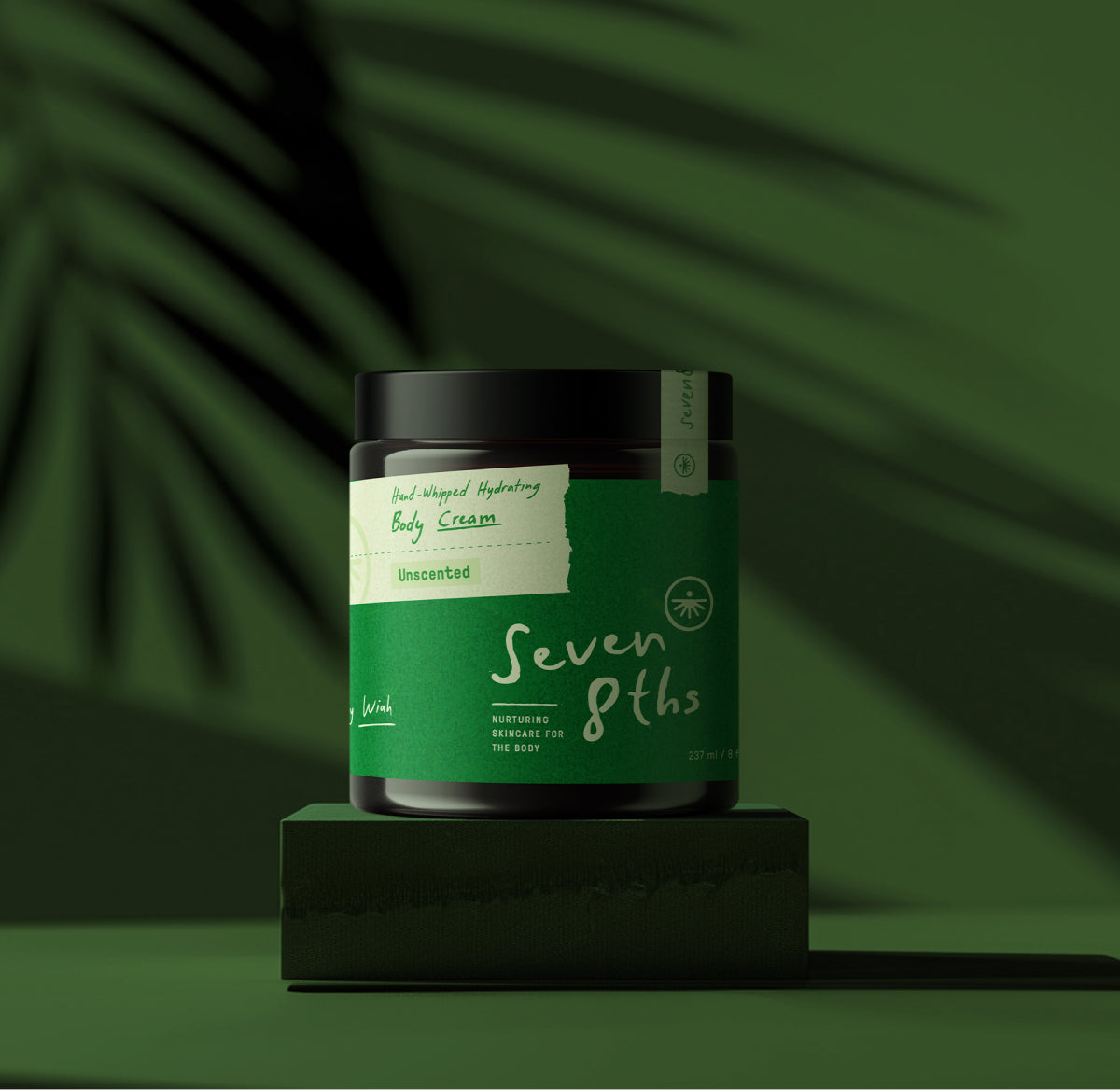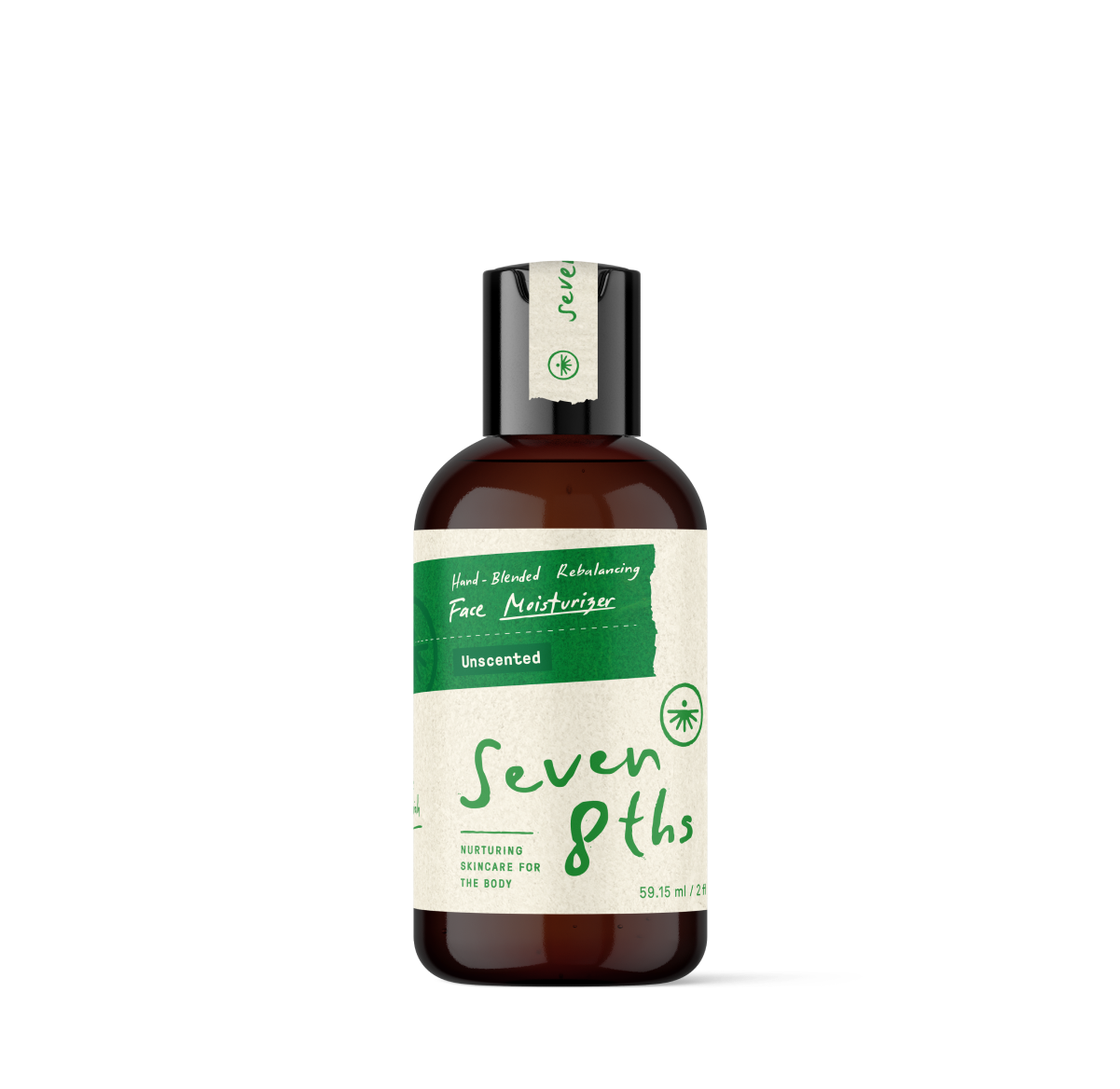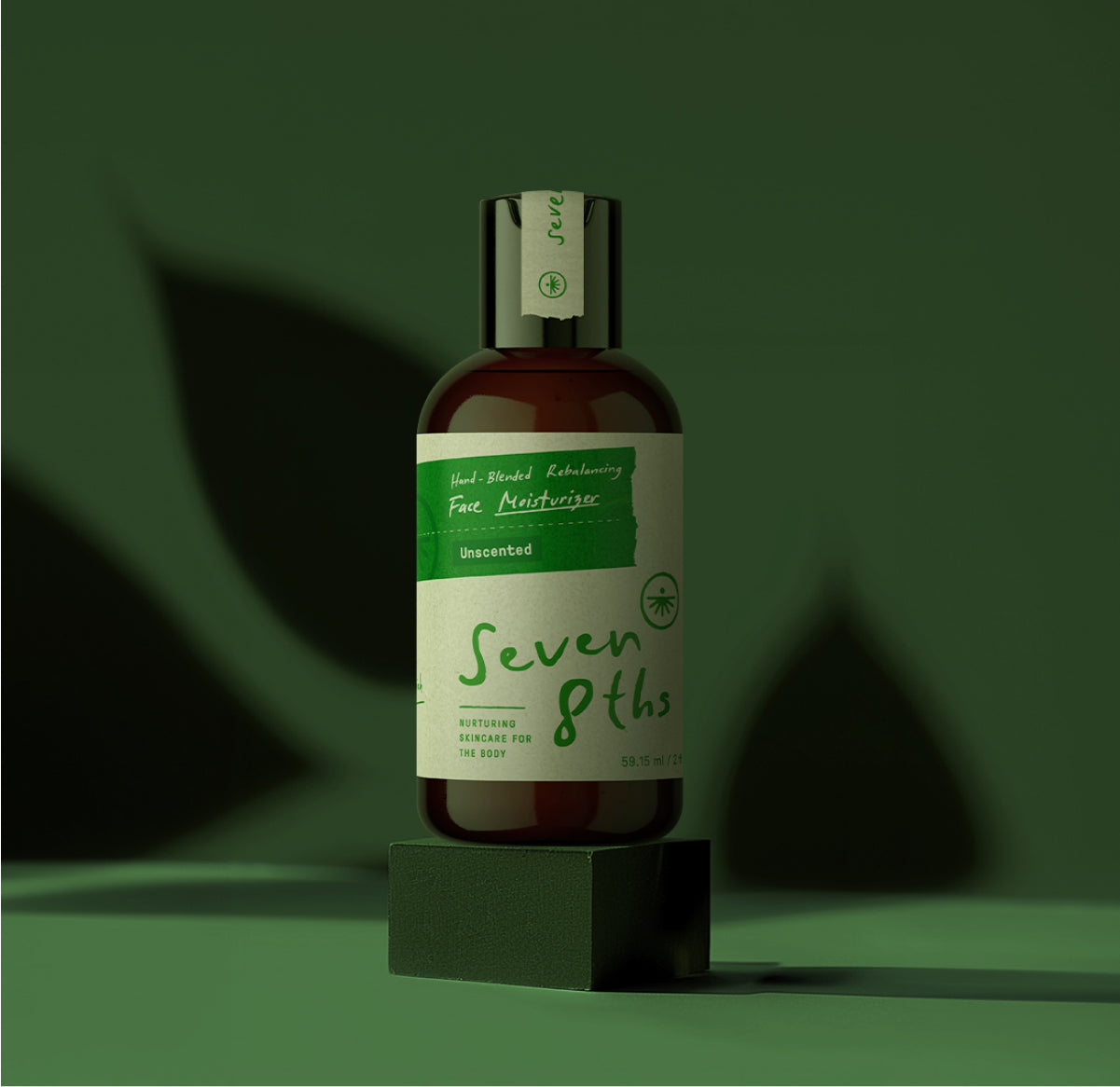
Skin Care 101
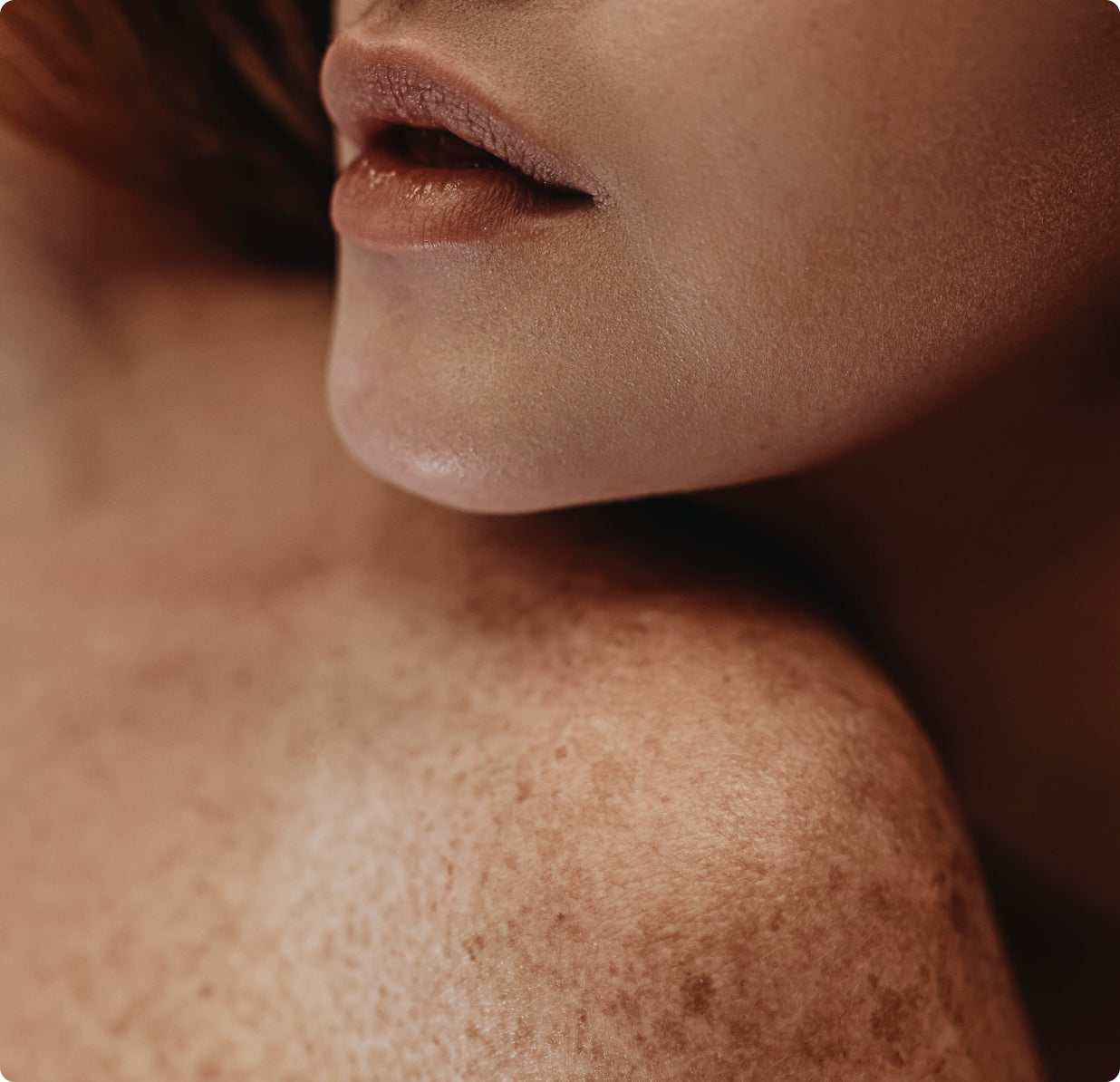
Bring all of your skin into total harmony
Your blanket of skin is one organ. It is your largest organ. Seven-eighths of your skin is your body, and only one-eighth is your face. Seven 8ths was created to inspire you to care for all of your skin. Our products embody this holistic philosophy, ensuring every inch of your skin receives the nourishment and attention it deserves
Your skin is your first line of defense. It protects you from infections, germs and the elements. It is made up of water, protein, lipids and a variety of minerals and chemicals. Skin accounts for approximately 15% of your body weight. Your skin is the only organ you feed internally and externally. Whatever you put on your skin eventually ends up inside your body. Therefore, it is important to feed your skin only what you want inside your body: nutrients.
For optimum vitality, your skin requires:
Exfoliation & Cleansing
Moisturization & Hydration
Protection from the Elements
Nourishment & Attention
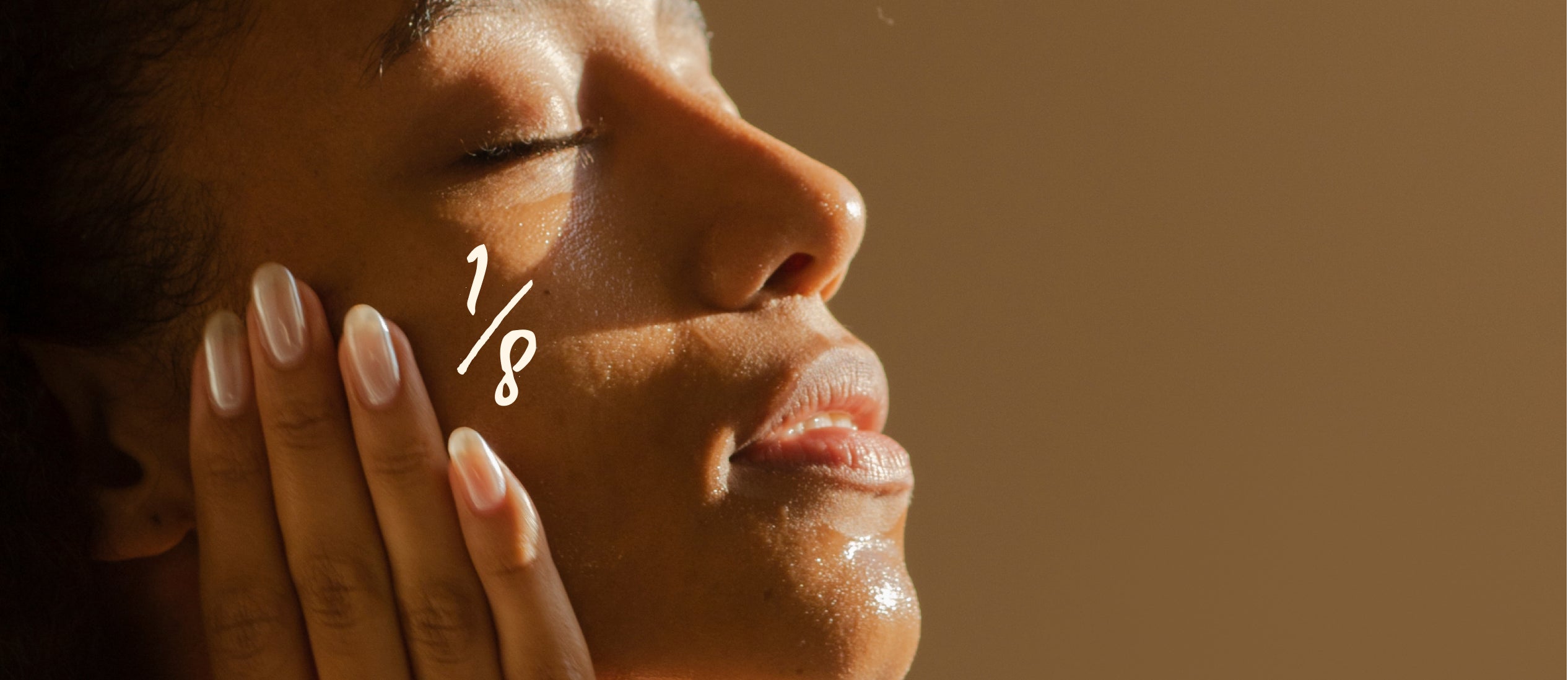
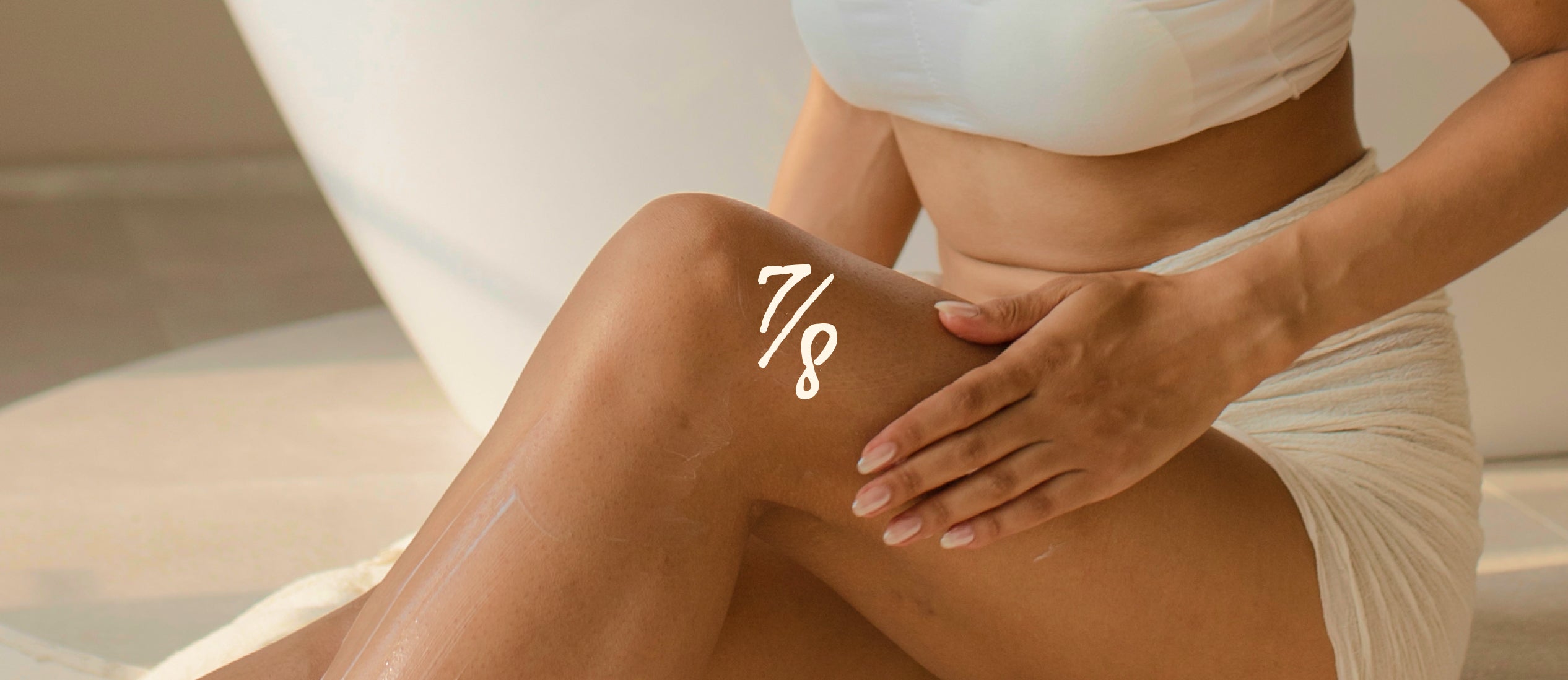
Exfoliation & Cleansing
Your entire blanket of skin sheds 30,000–40,000 dead cells every minute, making regular cleansing and exfoliation essential for removing buildup, unclogging pores, and allowing your skin to better absorb moisture and nutrients.
Using tools like body brushes, loofahs, scrub towels, and gentle scrubs helps keep your entire blanket of skin clean while allowing you to treat more delicate areas with extra care. Always choose a gentle cleanser that preserves your skin’s microbiome, which supports immunity, reduces inflammation, and helps maintain a healthy, radiant blanket of skin.
Moisture & Hydration
Daily moisturizing helps maintain your skin barrier, supports long-term skin health, and keeps your skin resilient and radiant at every age. Hydrated skin is softer, smoother, more elastic, and quicker to repair itself. The result is healthier, more protective, vibrant, and more youthful-looking skin.
Nighttime is an especially important time to moisturize. At night, your skin's natural repair processes kick into high gear with research showing that many repair mechanisms peak during evening and overnight hours. During this time, your body loses more water, and your skin becomes more receptive to topical applications. Before going to bed, apply moisturizer to your entire blanket of skin.
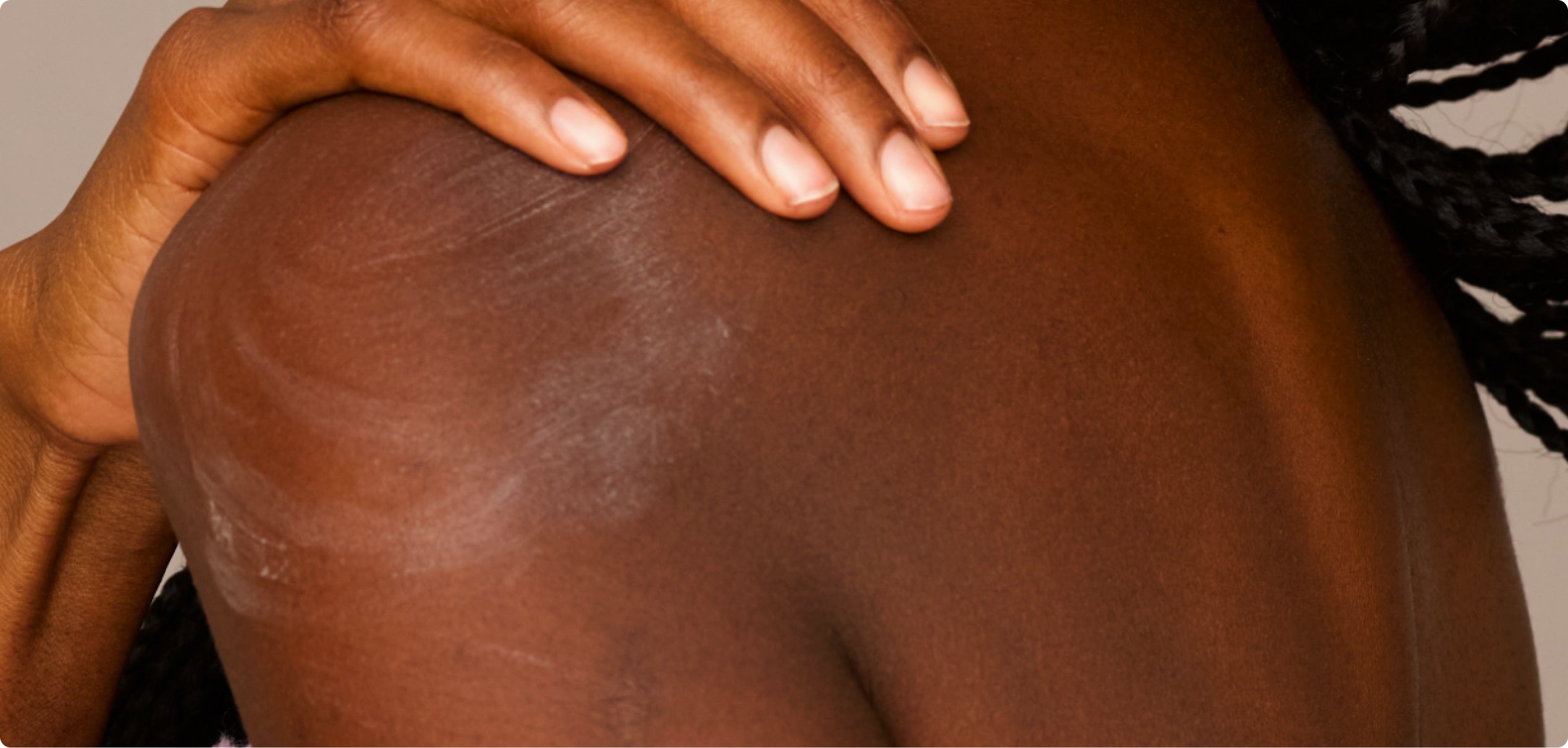
Protection From the Elements
Protecting the skin from harm and the elements is vital to the long-term health and resilience of your blanket of skin. Extreme temperatures, wind, and sun exposure can wreak havoc on your skin. Protecting your skin from the effects of the sun is arguably one of the most powerful daily skincare habits. Sunscreen should be applied to the skin daily, even in colder months, on cloudy days, and if you’re only outdoors for short periods of time. Use a broad spectrum sunscreen which protects against both UVA and UVB rays, preferably with an SPF of 30 or more.
Consider limiting your time in the sun, especially between 10 a.m. and 4 p.m. when UV rays are the strongest, and wear clothing that covers the skin, such as long-sleeved shirts, pants, and a wide-brimmed hat.
Nourishment & Attention
Your skin requires vital nutrients to remain healthy and support your longevity. Remember: your skin is the only organ you directly feed internally and externally.
Some vital nutrients your skin needs are:
- Vitamins A, C, D, E, B complex, and K
- Minerals, especially copper and zinc
- Phytonutrients (substances found in certain plants that are beneficial to human health and help prevent various diseases)
- Proteins
- Omegas 3, 6 and 9
Applying agents that hydrate, replenish and deliver nutrients into your skin helps maintain healthy, youthful, and resilient skin, as well as overall physical health.
